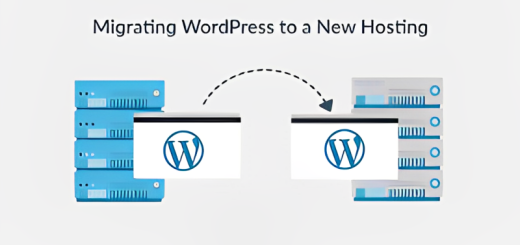A Comprehensive Guide to Web Hosting: Types, Features, and How to Choose

The bedrock of any online venture lies in its web hosting, shaping the trajectory of website performance, security, and user experience. This extensive guide not only dissects the diverse realms of web hosting but also unravels imperative features, offering expert insights to empower your decision-making process for a formidable online presence.
Exploring Web Hosting Types:
- Shared Hosting:
- Ideal for beginners and small websites.
- Resources are shared among multiple users on a single server.
- Cost-effective but may have limitations in terms of performance and customization.
- VPS Hosting (Virtual Private Server):
- Offers a dedicated portion of a server with more control and flexibility.
- Suitable for growing websites with moderate traffic.
- Balances performance and cost-effectiveness.
- Dedicated Server Hosting:
- Provides an entire server exclusively for one user.
- Offers maximum control, customization, and performance.
- Suited for large, high-traffic websites and applications.
- Cloud Hosting:
- Utilizes a network of interconnected servers for scalability and reliability.
- Pay-as-you-go model, allowing flexibility and cost efficiency.
- Ensures high availability and minimizes downtime.
Crucial Features for Consideration:
- Uptime and Reliability:
- Choose a web host with a track record of high uptime, ensuring your website is consistently accessible.
- Performance and Speed:
- Opt for a hosting provider that employs fast servers and offers content delivery networks (CDNs) for enhanced speed.
- Security Measures:
- Prioritize web hosts with robust security protocols, including SSL certificates, firewalls, and regular backups.
- Scalability:
- Consider a hosting solution that can seamlessly scale with your growing website traffic and resource requirements.
- Customer Support:
- Evaluate the quality and responsiveness of customer support, as timely assistance is crucial for addressing potential issues.
How to Choose the Right Web Hosting:
- Define Your Needs:
- Assess your website’s requirements in terms of traffic, storage, and specific features.
- Consider Budget Constraints:
- Determine a realistic budget and explore hosting options that align with your financial constraints.
- Evaluate Performance Metrics:
- Research and compare performance metrics, such as server response time and load speed, to ensure optimal user experience.
- Check User Reviews:
- Read reviews and testimonials to gauge the experiences of other users with the hosting provider.
- Examine Additional Features:
- Look for additional features such as cPanel access, automatic backups, and one-click installations for content management systems.
Conclusion:
In the ever-evolving sphere of web hosting, the judicious selection of a provider and plan is pivotal for online success. By comprehending hosting varieties, honing in on vital features, and adopting a methodical decision-making approach, you fortify your website’s foundation in performance, security, and scalability. Let this comprehensive guide be your compass in navigating the intricate landscape of web hosting, ensuring that your online presence remains not only robust but innovative and future-ready.










pPRrqKMhIWeBH